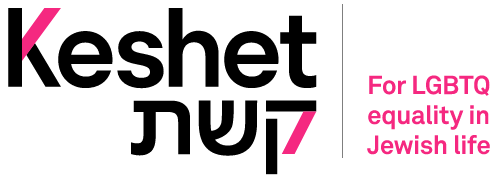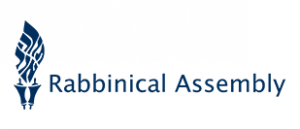Parashat Chukat: Transitional Lessons
Sermon given July 5th, 2025
Shabbat shalom, everybody.
I am absolutely thrilled to finally be here. Even though I still haven’t seen any moose yet.
I have, however, spent the past week being inundated in the best way with warmth, welcome, assistance, and excitement by TBE members. Y’all are awesome. This palpable energy is one of the things that drew me most to TBE when I interviewed, and it is a deep honor to now count myself as one of you, and as your Rabbi.
I know this is a holiday weekend, and a lot of folks are away, so I’ll save my “official” intro sermon for next weekend. That being said, we still have time for a little Torah today. And, it just so happens that, while we are navigating our own set of transitions here at TBE, this week’s Torah portion, parashat Chukat, offers us a fascinating glimpse into another moment of transition, an ancient moment of transition, that deeply impacted our ancestors. Specifically, our parasha discusses the death of the first High Priest, Aaron, and the ascension of his son, Elazar, to the same role in his stead.
God says to Moses:
קַ֚ח אֶֽת־אַהֲרֹ֔ן וְאֶת־אֶלְעָזָ֖ר בְּנ֑וֹ וְהַ֥עַל אֹתָ֖ם הֹ֥ר הָהָֽר׃
Take Aaron and his son Eleazar and bring them up on Mount Hor.
וְהַפְשֵׁ֤ט אֶֽת־אַהֲרֹן֙ אֶת־בְּגָדָ֔יו וְהִלְבַּשְׁתָּ֖ם אֶת־אֶלְעָזָ֣ר בְּנ֑וֹ וְאַהֲרֹ֥ן יֵאָסֵ֖ף וּמֵ֥ת שָֽׁם׃
Remove Aaron’s vestments and put them on his son Eleazar. There Aaron shall be gathered unto his kin.
וַיַּ֣עַשׂ מֹשֶׁ֔ה כַּאֲשֶׁ֖ר צִוָּ֣ה יְהֹוָ֑ה וַֽיַּעֲלוּ֙ אֶל־הֹ֣ר הָהָ֔ר לְעֵינֵ֖י כׇּל־הָעֵדָֽה׃
Moses did as יהוה had commanded. They ascended Mount Hor in the sight of the whole community.
וַיַּפְשֵׁט֩ מֹשֶׁ֨ה אֶֽת־אַהֲרֹ֜ן אֶת־בְּגָדָ֗יו וַיַּלְבֵּ֤שׁ אֹתָם֙ אֶת־אֶלְעָזָ֣ר בְּנ֔וֹ וַיָּ֧מׇת אַהֲרֹ֛ן שָׁ֖ם
בְּרֹ֣אשׁ הָהָ֑ר וַיֵּ֧רֶד מֹשֶׁ֛ה וְאֶלְעָזָ֖ר מִן־הָהָֽר׃
Moses removed Aaron’s vestments and put them on Aaron’s son Eleazar, and Aaron died there on the summit of the mountain. When Moses and Eleazar came down from the mountain,
וַיִּרְאוּ֙ כׇּל־הָ֣עֵדָ֔ה כִּ֥י גָוַ֖ע אַהֲרֹ֑ן וַיִּבְכּ֤וּ אֶֽת־אַהֲרֹן֙ שְׁלֹשִׁ֣ים י֔וֹם כֹּ֖ל בֵּ֥ית יִשְׂרָאֵֽל׃ {ס}
the whole community knew that Aaron had breathed his last. All the house of Israel bewailed Aaron thirty days.
Now, the transition TBE is going through does not involve a death of a leader, chass v’shalom, but it does indeed involve a change of leadership and vision, and marks the beginning of a new and as-yet-uncharted chapter for this community– just as the arrival of Elazar as the new High Priest marked a similar new chapter for all of B’nai Yisrael thousands of years ago.
There are many rich details in this text, but there are three points in particular which I would like to pull out and focus on today. First: the importance, when we are in transition, of honoring those who have gone before us; second, how crucial it is to honor how we are feeling during a transition; and third, as a complementary lesson to point number two, how valuable it can be to also contain and limit those emotions in the coming months, so that they do not overshadow the potential of the future.
Let’s dig in.
First, the story of Aaron’s death and Elazar’s assumption of the High Priesthood reminds us that as we move towards the future, we must honor the past. God informed Moses that Aaron was going to die, to be “gathered into his kin”, using the verb “asaf”, to gather or add. The use of the phrase “gathered into his kin” is really lovely, because it reminds us that though Aaron’s time has passed, his legacy and place among his people is not being forgotten: he is portrayed, by using the word “asaf”, to gather in, as being part of a proud communal tradition, a link between those who went before and those who would come after. By saying “Asaf”, we are reminded that Aaron’s wisdom is being added on to the wisdom of his own ancestors.
From this, we here at TBE today are reminded to take a step back and look at the current season of transition within the context of the rich history and tenacity of this community and its place within the broader Jewish world and tradition. It is important to remind ourselves that each leader TBE has had up until this point, has made powerful contributions to this synagogue which will always be a part of us, and which, like our own contributions today, will indeed be remembered and “gathered in” to the story of this shul. Regardless of how each of us feels about this particular moment of transition, we can commit to honoring the legacies of the past while we also build the future of this congregation, just as it was important to speak of Aaron’s contributions with honor while the Israelites moved forward under the priestly guidance of Elazar.
The second lesson from this week’s parasha has to do with honoring how we are feeling. The story in this week’s parasha offers a lovely example of a community supporting one another in a time of great emotion and upheaval. The occasion of Aaron’s death concludes with the first mention of Shloshim in our tradition, where we see all of B’nai Yisrael in mourning for thirty days, dedicating themselves completely to honoring the grief and loss they are feeling.
And though this is indeed a time of excitement and possibility for all of us at TBE, I want to name that transitions can also inspire anxiety, worry, and yes, even grief. To quote the wise rock band of my youth, Semisonic, every new beginning comes from some other beginning’s end. Feeling loss and happiness at the same time is not contradictory: it is human. I imagine that Elazar would have certainly felt a whole mixture of emotions.
That means that it is OK if this is a multi-faceted moment for us as a congregation and as a community. This sacred space TBE has created, and the wider sacred space of our tradition, are deep enough for the entirety of what we feel and what we wrestle with– the good and the bad, the comfortable and the unsettling, the known and the unknown.
And our Torah portion offers guidance on how to navigate these unique waters.
Our third and final lesson from today’s portion also has to do with Shloshim, the time-limited emotional space that our tradition offers us with as we navigate loss. The existence of Shloshim is a gift. It teaches us that we must first honor our emotions and face them– and then, once we have given them the attention and discussion they deserve, it is alright and sometimes advantageous to set a boundary on our emotions, and to provide them with a defined container, in order to allow ourselves to move forward from that space of deepest feeling. This is perhaps the trickiest of the three lessons to internalize, but it is also one we can commit to helping one another navigate in the weeks to come.
Because beyond anything we might be feeling right now– eagerness, excitement, worry, happiness, loss, curiosity– this is a moment of sacred potential for TBE, and the first step on a journey we must go on together. We all get to build that future together.
I’m wearing a tallit and a kippah today, like many of you, not the priestly vestments inherited by Elazar as he began his tenure as the new High Priest. But like Elazar, I am new to this role, and I am humbled by the presence of those who have come before me, and by the hope I feel for what the future might hold. And I hope, and I pray, that all of us will bring our full selves to this holy endeavor, and will not remain caught in the past, or what might have or might have not been.
As we move forward from this day, I bless us all with the wisdom to learn the three lessons from this week’s Torah portion. May we honor those who have brought us to this moment; may we feel, in honesty and bravery, the feelings within us at this moment; and then may we move forward into whatever comes next together, committed to turning towards each other in times of happiness, in times of grief; in times of frustration and in times of contentment.
I cannot wait to see where we will go. Shabbat shalom!



